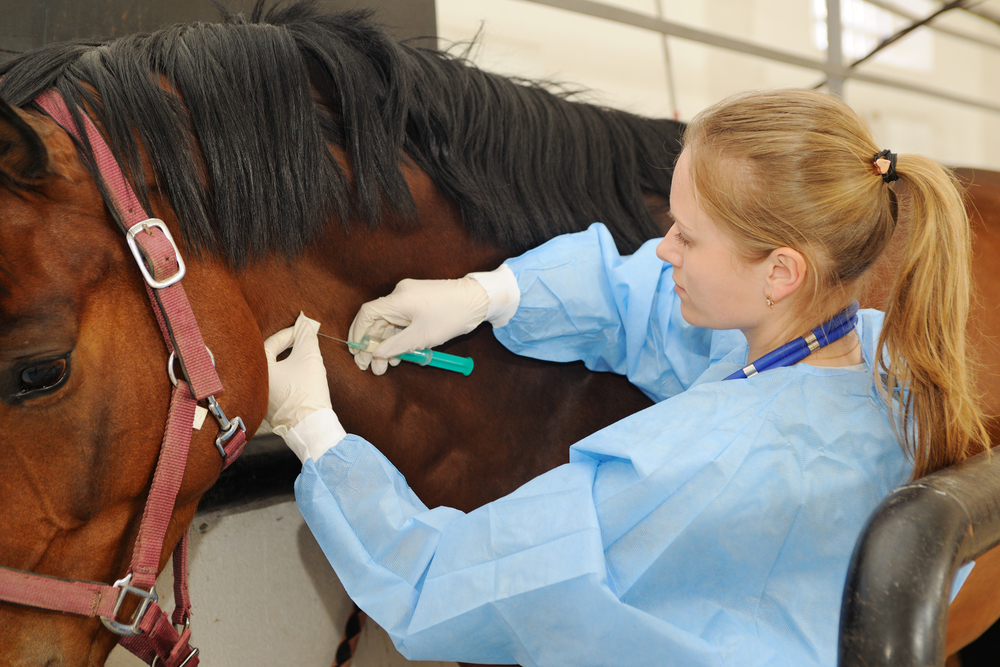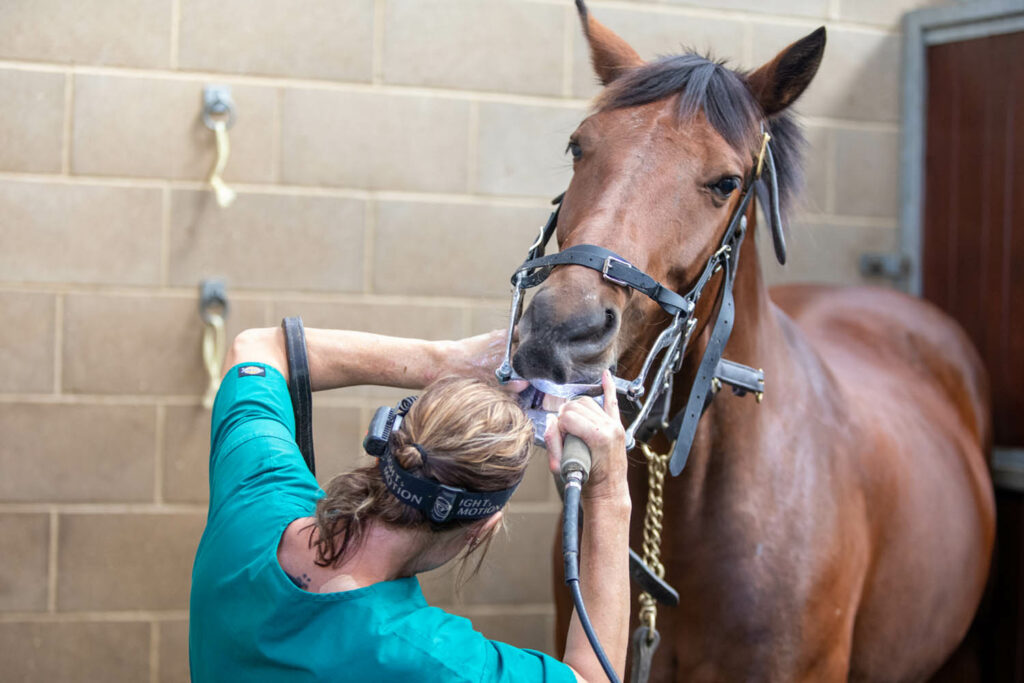When it comes to equine health, one crucial aspect that often gets overlooked is floating a horse’s teeth. This practice is vital for maintaining a horse’s overall well-being. Ensuring your horse’s dental health is not only about comfort but also about their ability to chew and digest food properly. As an equestrian enthusiast, understanding the importance of this procedure can make a significant difference in your horse’s life.

What Does Floating a Horse’s Teeth Mean?
Floating a horse’s teeth involves the careful filing or rasping of a horse’s teeth to eliminate sharp points or edges. These sharp edges can develop over time due to the natural grinding motion of chewing. If left untreated, they can cause discomfort, pain, and even lead to eating difficulties. Regular equine dental care is essential to ensure that your horse can eat comfortably and maintain a healthy weight.
Why Is Floating Necessary?
The importance of floating a horse’s teeth cannot be overstated. Horses have a unique dental structure where their teeth continuously erupt throughout their life. This continuous growth means that sharp points can develop, especially on the edges of the molars. These points can cause severe pain and lacerations to the cheeks and tongue. Floating helps to smooth these edges, ensuring a pain-free eating experience.
The Impact of Dental Issues on a Horse’s Health
Dental problems in horses can lead to a wide range of health issues. A horse that cannot chew properly may suffer from weight loss, colic, and behavioral problems. By regularly floating a horse’s teeth, you prevent these issues, ensuring your horse remains healthy and active. According to the experts at KER Equinews, basic dental care is fundamental to a horse’s overall health.
How Often Should You Float a Horse’s Teeth?
The frequency of floating depends on several factors, including the horse’s age, diet, and individual dental health. Generally, most horses require their teeth to be floated once every 6 to 12 months. However, young horses under the age of five and older horses over the age of 20 might need more frequent attention. Regular dental check-ups by a qualified equine dentist or veterinarian are recommended to determine the appropriate schedule for your horse.
Signs That Your Horse Needs Dental Care
Recognizing the signs of dental issues is crucial for timely intervention. Look out for symptoms such as dropping food, weight loss, bad breath, facial swelling, and reluctance to eat. If you notice any of these signs, it’s time to consult with a professional to assess whether your horse’s teeth need floating.
The Floating Process: What to Expect
The process of floating a horse’s teeth is generally straightforward. A veterinarian or certified equine dentist will use specialized tools to file down the sharp points. The procedure is typically done with the horse under sedation to ensure safety and comfort. The professional will carefully examine the mouth, checking for any irregularities, and then proceed to float the teeth as needed.
Choosing the Right Professional
It is essential to choose a qualified professional to perform dental work on your horse. Look for someone with experience and proper certification. You can ask for recommendations from fellow horse owners or consult your veterinarian for trusted professionals in your area.
Post-Floating Care: Keeping Your Horse Comfortable
After the procedure, monitor your horse for any signs of discomfort or complications. Ensure they have access to plenty of fresh water and provide soft feed if necessary. Most horses recover quickly from floating and show improved eating habits and overall demeanor.
Preventive Measures for Optimal Dental Health
In addition to regular floating, maintaining your horse’s dental health involves a balanced diet and routine veterinary check-ups. Providing your horse with high-quality forage and monitoring their eating habits can help prevent dental issues from arising. For more detailed information on equine dental care, you can explore this comprehensive guide.

FAQs About Floating a Horse’s Teeth
How can I tell if my horse needs its teeth floated?
Look for signs such as dropping food, weight loss, and bad breath. Regular dental check-ups can help identify the need for floating.
Is floating painful for the horse?
No, the procedure is not painful as horses are usually sedated to ensure comfort during the process.
Can I float my horse’s teeth myself?
It is not recommended for horse owners to attempt floating their horse’s teeth. This procedure requires specialized skills and tools that only qualified professionals possess.
For more insights into equine health and care, visit B&W Equine Vets and ensure your horse receives the best possible care.
This article contains affiliate links. We may earn a commission at no extra cost to you.
